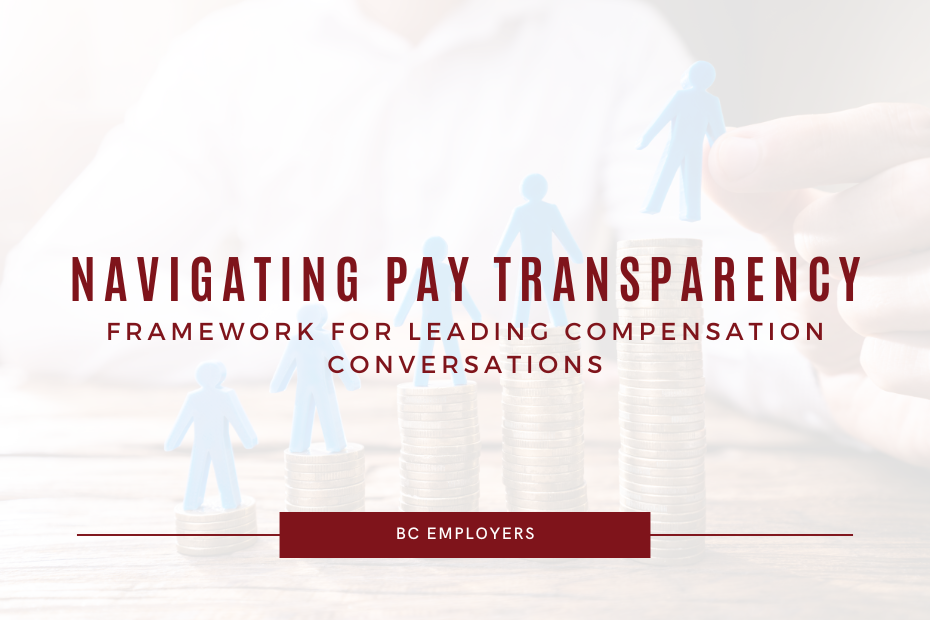Compensation can be a sensitive topic, and with the BC Pay Transparency Act in effect, you can expect to lead some conversations around compensation with your team.
Though leading compensation conversations can be daunting, we have created a framework for leaders to follow as they navigate these discussions with their teams.
But first… what is the BC Pay Transparency Act?
The Pay Transparency Act is a new legislation in British Columbia with an aim to eliminate gender pay gap disparity and systemic discrimination in the workplace.
In 2022, women in BC earned 17% less than men. The pay gap also disproportionately impacts Indigenous women, women of colour, immigrant women, women with disabilities, and non-binary people.
The Act requires BC employers to be transparent about their employees’ pay, making it a powerful tool to address these disparities and promote pay equity.
How does the Pay Transparency Act impact BC employers?
As a BC employer, there are a few obligations that you must comply with:
- Employers must provide a clearly defined expected salary or wage range for publicly advertised job openings.
- Do: “$20-$30 per hour” or “$50,000-70,000 per year”
- Don’t: “$20 per hour and up” or “start at $50,000 per year”
- Employers cannot request pay history information from job applicants.
- Employers cannot retaliate against employees who inquire about their pay, disclose pay information, or report non-compliance with the Act.
- Employers must prepare and publish annual pay transparency reports and allow employees to update their information at least once a year. (Click here to find out when your report deadline is!)
And as with any new legislation, we know there’s always a few questions that pop up.
You can expect to be asked some questions, which might include:
- “Why is my salary different than what’s posted?”
- “How are salaries determined within the company?”
- “What is the company doing to ensure pay equity and fairness?”
We created a framework for leaders to leverage in follow-up conversations.
It consists of 4 simple steps:
- The Acknowledgement: Start by acknowledging the question and thanking the team member for bringing it up.
- The Details: Explain how your company determines salaries, considering factors such as the compensation philosophy, the job market, and the company’s budget. Salaries are not solely based on an individual’s performance or experience.
- The Commitment: Reiterate your company’s commitment to pay transparency and equitability. Let your employee know that you’re always willing to discuss their salary and are committed to ensuring they are paid fairly for their work.
- 1:1 Support: Schedule a meeting if your team member isn’t satisfied or would like additional details. Come prepared to discuss your organization’s greater pay philosophy.
Leveraging these 4 steps can help prepare you as a people leader to approach conversations around compensation with empathy, clarity, and a commitment to fairness.
Pay transparency isn’t just a legal requirement but is a driving force behind building an inclusive workplace. As a result, your ability to navigate these discussions is pivotal!
